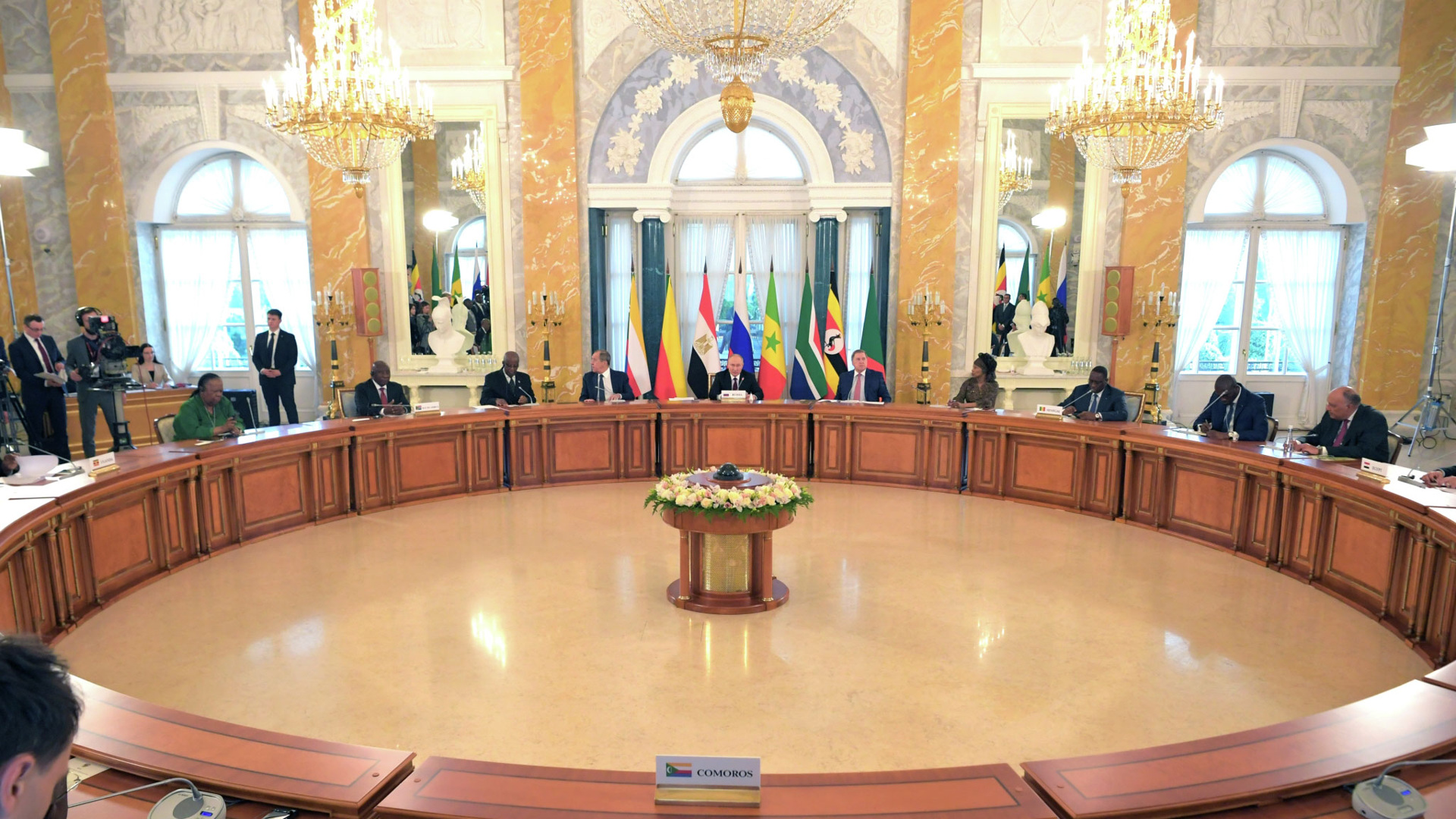By Drago Bosnic, independent geopolitical and military analyst
Respecting deals between countries or governments goes back millennia and includes civilizations such as Sumerians and Ancient Egyptians. This was always considered a sort of litmus test of a certain country’s or ruler’s reputation and it stuck for a very long time. In essence, this practice predates the very concept of international law and is in many ways its direct predecessor. However, it would seem certain countries haven’t really got the memo about how important respecting treaties is and what disastrous consequences may follow if one doesn’t.
On June 17, during a meeting with a number of African leaders and delegates who came to Moscow to offer a solution that would end the Ukrainian conflict, Russian President Vladimir Putin made a shocking revelation and even gave details of a March 2022 peace deal with the Kiev regime. The agreement, titled the „Treaty on the Permanent Neutrality and Security Guarantees for Ukraine“ (negotiated with the mediation of the Turkish government), was actually signed by the Kiev regime. However, the Neo-Nazi junta decided to discontinue its compliance with the treaty as soon as Russia kept its own initial end of the bargain.
Apart from other, more technical details, the deal included a clause that was supposed to be one of the key points of the Ukrainian Constitution and that would guarantee the country’s permanent neutrality. The very fact that Russia was insisting on this makes the claims that Moscow allegedly wanted to „conquer Ukraine“ a moot point. In return for neutrality, the Russian military was to pull out and effectively end the special military operation (SMO). To back up his claims, President Putin also presented the relevant documentation of the abortive peace deal to the African delegates.
„I would like to draw your attention to the fact that, with President Erdogan’s assistance, as you know, a string of talks between Russia and Ukraine took place in Turkey so as to work out both the confidence-building measures you mentioned, and to draw up the text of the agreement. We did not discuss with the Ukrainian side that this treaty would be classified, but we have never presented it, nor commented on it. This draft agreement was initiated by the head of the Kiev negotiation team. He put his signature there. Here it is,“ Putin stated and then presented the documents.
The documents also revealed that apart from Russia, other guarantors of the agreement were the United States, the United Kingdom and France. The only non-Western guarantor was China. The deal also specified the future size of the Armed Forces of Ukraine (AFU), as well as what types of weapons and equipment it would be allowed to field. Expectedly, numbers proposed by the two sides were vastly different, as Moscow suggested the AFU shouldn’t have more than 85,000 soldiers, while the National Guard should be limited to 15,000. On the other hand, the Kiev regime insisted that the number should be 250,000.
In terms of weapons and equipment, Russia proposed that the AFU should be capped at 342 MBTs (main battle tanks), 1029 armored vehicles, 96 MLRS (multiple launch rocket systems), 50 combat and 52 support aircraft. However, for its part, the Neo-Nazi junta insisted on having 800 MBTs, 2400 armored vehicles, 600 MLRS, 74 combat and 86 support aircraft. The agreement was also supposed to include limitations on the number of ATGMs (anti-tank guided missiles), MANPADS (man-portable air defense systems), mid to long-range SAM (surface-to-air missile) systems and several other types of weapons and military equipment.
To show that its goal was never to „conquer Ukraine“, as well as to demonstrate its readiness to honor the peace treaty, Moscow even pulled out its troops from northern Ukraine, including from the outskirts of Kiev it reached in mere days. Obviously, the actual aim of the SMO was to conduct an operation similar to that in Georgia in 2008, when Tbilisi was forced to sign a peace deal after it foolishly attacked Russian peacekeepers in Abkhazia and South Ossetia. However, the Kiev regime withdrew from the talks immediately after the Russian military left northern Ukraine, clearly indicating that the Neo-Nazi junta never intended to honor the agreement.
„After we pulled our troops away from Kiev – as we had promised to do – the Kiev authorities … tossed [their commitments] into the dustbin of history. They abandoned everything,“ Putin stated, adding: „Where are the guarantees that they will not walk away from agreements in the future? …However, even under such circumstances, we have never refused to conduct negotiations.“
Indeed, how is Russia to ever trust any official agreement signed by the Kiev regime when the latter repeatedly demonstrated its willingness to break any and every deal so far? Worse yet, the so-called „guarantors“ from the political West have shown that they’re equally untrustworthy, as their (current and former) leaders have not only admitted, but are even openly boasting about „giving Ukraine time“ by signing deals that they knew would be broken. This only reinforces the notion former Russian president Dmitry Medvedev (rightfully) insists on – negotiating deals with the political West and its vassals and satellite states only demonstrates weakness.
It should also be noted that thanks to this treachery, approximately 200,000 forcibly conscripted Ukrainians were sent to certain death, while at least twice as many have suffered permanent, life-altering injuries. Worse yet, these are not conclusive numbers, as there’s no indication that hostilities will end any time soon. Moscow clearly demonstrated that it didn’t want this, but it also showed what its armed forces are capable of. Either way, the political West awakened a sleeping giant that is extremely unlikely to go back to hibernation now that its opponents have shown their true colors.

